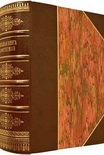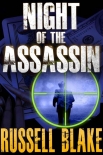The Gangster, Clive Cussler [ebook smartphone txt] 📗

- Author: Clive Cussler
Book online «The Gangster, Clive Cussler [ebook smartphone txt] 📗». Author Clive Cussler
“Whose idea was this?”
“It was Joseph Van Dorn’s idea.”
“I should have guessed.”
“When I told him that you might not be one hundred percent pleased, he said that a war hero like yourself would recall the power of surprise.”
“I am in the hands of the professionals,” President Roosevelt intoned, but a dangerous glint in his eye informed the chief of his protection corps not to take any more liberties.
Joseph Van Dorn waited beside the big White Steamer, wearing a slouch hat, a polka-dot bandanna, and wire-framed spectacles. He held the automobile door for the President and said, “I would appreciate it if we would raise the top.”
Roosevelt looked him over sharply.
“What happened to your face?”
“I shaved my sideburns.”
“What are you up to, Joe? You don’t wear specs, but you’re wearing specs—without glass in them. And what’s that hat doing on your head? You weren’t a Rough Rider; you were a United States Marine.”
“Confusing the enemy,” said Van Dorn.
“Has it occurred to you that if you confuse them too successfully, you’ll be the one shot?”
Van Dorn answered with a straight face. “The voters spoke loud and clear, Mr. President. Not one of them voted for me.”
“The top stays down.”
Van Dorn said, “Would you read this wire from Detective Bell?”
LOST BRANCO
CULP’S 1903 SPRINGFIELD GONE
“The 1903 Springfield is—”
“A deadly sniper rifle,” the President completed Van Dorn’s warning. “O.K. You win! Raise the top.”
Van Dorn and the chief quickly unfolded the canvas and locked its framework. The chief got behind the wheel. Van Dorn climbed in next to him.
“That make you happy?” the President called from the backseat. “You don’t look happy. Now what’s wrong?”
“If you’d agreed earlier, you would have saved my whiskers.”
Roosevelt poked the canvas with his finger. “This top is going right back down at Storm King.”
“Leave your shovels,” the Irish foreman bellowed at the pick and shovel gang grading a drainage ditch. “All a youse.” He pointed at the road to the shaft house. “Get up there with the rest of ’em.”
A thousand Italian laborers already lined the road, six deep on either side, a festive crowd celebrating the unheard-of luxury of paid time off. The contractor had handed out bread and sausages. Wine bottles hidden under coats washed it down. Accordions wheezed, drowned out by an organ grinder’s jaunty tunes that carried in the clear, cold air like a miniature steam calliope. Rumors flew that the great Caruso would appear with the beauteous Tetrazzini. Best of all, the President of the United States—Il Presidente himself—the famous Spanish-American War hero Colonel TR—was coming all the way to Storm King to thank them for digging a “bully” aqueduct.
“Get up there! He’s on his way.”
They scrambled out of the ditch and raced to the road. Head still bowed, hat brim shadowing his face, eyes fixed on his boots, and slouching to disguise his height, Antonio Branco struggled to keep up, limping like an old man.
The foreman urged them into line, then swaggered into the road and cupped his hands to his mouth.
“Listen, all a youse,” he bawled, beckoning the young laborer he used to translate orders on the job. “Tell ’em, when the President comes by, take off your hats and cheer real loud.”
The translator rendered the order into Italian.
“If, God forbid, the President was to take it in his head to stop and talk to you, hold your hat over your heart and nod your head and give him a big smile.”
The translator repeated that.
“When he speechifies, tell ’em watch me. When I clap, they clap hands like it’s an Eye-talian opera.”
The Irishman pantomimed applause.
“And the second after the President goes down the shaft, I want to see a stampede of guineas running back to work.”
Antonio Branco wedged his way toward the front of the crowd on a path surreptitiously cleared by Black Hand gorillas. They were dressed convincingly as laborers, but the legitimate pick and shovel men instinctively steered clear of them. Branco stationed himself in the second row, where the crowd was thickest, just behind the organ grinder.
The organ grinder reached inside the instrument and shifted the barrel sideways to change the tune. Then he resumed turning the crank that made the barrel move the keys and the bellows blow air in the pipes. His monkey, costumed for the occasion like a Roosevelt Rough Rider in a polka-dot bandanna and blue shirt, went back to work catching pennies in a miniature slouch hat.
The immigrants lining the road exchanged puzzled looks. Instead of the familiar romantic strains of “Celeste Aida” or a rollicking tarantella, the street organ piped out a lively American march.
Only laborers who had been in America long enough to have worked digging the New York Interborough Rapid Transit subway back in ’04, recognized a Republican campaign song bellowed by Roosevelt voters.
“Il Presidente!” they explained to later arrivals. “Il Presidente canto.”
The translator shouted the title of the song.
“‘You’re all right, Teddy!’”
43
Isaac Bell strode up and down the road leading to the siphon tunnel shaft.
They had built a reviewing stand near the shaft house and hung it with bunting that flapped cheerfully in the bitter wind. The stand was packed with contractors and city officials in overcoats and top hats. Luisa Tetrazzini and Enrico Caruso huddled there, both barely visible wrapped in woolen mufflers. Italy’s elegant white-haired Consul General for New York City sat between the opera stars, beaming like he had won the Lottery.
Wally Kisley hurried after Bell to report on the booby trap he had defused. He thought that the hard-driving young detective looked as if he were hoping he could somehow search out the intentions in every one of the thousand faces before the President arrived.
“Isaac!”
Bell cut Kisley off before he could say another word.
“Look inside that street organ. It’s big enough to hold a bomb, and the auto’s going to pass right in front of it.”
“On my





Comments (0)